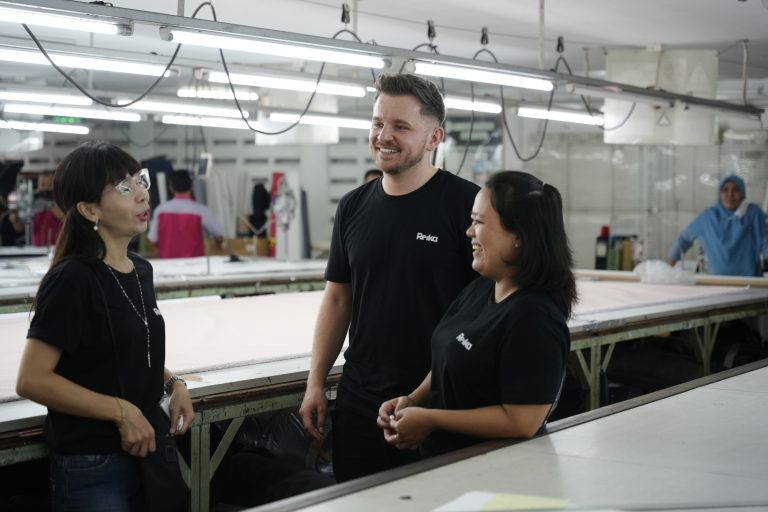Mather Jamie expands with graduate development surveyor
Next steps for transformative North Leicestershire college merger
Property industry’s support pushes forward transformation of Wilmorton community gardens
Community group seeks approval to convert former pub into mosque
Eyres Monsell Community Foundation has submitted a planning application to convert The Glen, a former pub on Hillsborough Road in Glen Parva, into a mosque. The group, which established a place of worship at Eyres Monsell Community Centre in 2019, says it has outgrown its current space. Friday prayer sessions attract around 150 attendees, leading to some being turned away.
Astill Planning Consultants, representing the foundation, argues that repurposing the vacant pub will provide community benefits that outweigh the loss of the hospitality venue. The nearest existing mosque is approximately 1.5 miles away in Aylestone.
Leicester City Council is expected to decide on the application in May under delegated powers.
Midlands mayors agree to joint economic strategy
The mayors of the West Midlands and East Midlands have signed a formal agreement to collaborate on economic growth, infrastructure, and investment. The West and East Midlands Compact, launched at the Manufacturing Technology Centre in Coventry, aims to strengthen industries, attract investment, improve transport, boost research, and provide regional leadership.
The partnership aligns the West Midlands Combined Authority (WMCA) and the East Midlands Combined County Authority (EMCCA), covering a £132.6bn economy with over 147,000 businesses and 5.2 million residents.
The agreement signals a push for regional economic cooperation to secure funding, enhance supply chains, and drive innovation. The mayors emphasised that a united approach would support job creation, business expansion, and long-term infrastructure improvements.
Legal challenge halts landlord licensing scheme in Scunthorpe
A legal challenge has delayed the rollout of North Lincolnshire Council’s selective licensing scheme for private landlords in parts of Scunthorpe.
The scheme, approved in September 2023, was set to take effect on 20 March 2024. It required landlords in Crosby, Park, and Town Wards to obtain a licence, costing £955 for five years, and comply with regulations on safety measures and anti-social behaviour management.
The Crosby Landlords’ Association has filed for a judicial review, questioning whether the council followed proper procedures in approving the scheme. As a result, the council has suspended applications and will provide further updates on its website.
The delay leaves uncertainty for landlords and tenants, as the scheme aimed to improve housing standards. North Lincolnshire Council has yet to comment on the challenge.
Developer allowed to cut affordable housing in Langley Mill project
Amber Valley Borough Council has approved Wheeldon Brothers’ request to reduce the number of affordable homes in its Hall Road development in Langley Mill. Originally approved for 93 homes with 27 affordable units in 2021, the commitment was later lowered to 14 and has now been further reduced to eight.
The developer argued that it is delivering 109 affordable homes at a separate site on Bridge Street, Langley Mill, including 43 shared ownership units and 66 for affordable rent in partnership with Places for People. Councillors debated the decision, with some arguing that each development should be assessed independently and that developers must uphold their contributions.
Council officers stated that the Hall Road project was not financially viable under the original Section 106 agreement, and the developer rejected alternative proposals. The East Midlands Combined County Authority has allocated funding to kick-start work on the Bridge Street site, bringing the total proportion of affordable housing across both sites to 50%.
Rolls-Royce considers US expansion to counter trade tariffs
Rolls-Royce is evaluating a shift in engine production to the US as a strategic response to potential trade tariffs under Donald Trump’s policies. The company, headquartered in Derby, is increasing US production capacity to safeguard its supply chain and maintain competitiveness in key markets.
While no immediate impact on UK operations is expected, Rolls-Royce is reviewing its global production footprint. A company spokesperson confirmed that it is exploring ways to optimise its supply chain for US customers. The firm has not ruled out further changes to its UK manufacturing base.
The review follows strong financial performance, with underlying profit rising from £1.26 billion to £2.29 billion last year. Rolls-Royce forecasts adjusted operating profit of £2.7 billion to £2.9 billion in 2025 and has raised its mid-term targets to between £3.6 billion and £3.9 billion. CEO Tufan Erginbilgic emphasised the company’s focus on accelerating growth and efficiency.
Nottinghamshire procurement strategy injects millions into local economy
Nottinghamshire County Council has awarded more than 70% of its procurement contracts to local suppliers, injecting millions into the regional economy. In the third quarter of the 2024/25 financial year, 19 new contracts worth an estimated £113 million have been issued, with 113 more projects in progress.
Currently, 74% of the council’s contracts are awarded to Nottinghamshire-based suppliers, while 56% go to the county’s small and medium-sized enterprises (SMEs). The council holds contracts with 604 local suppliers, collectively valued at over £3.6 billion.
Councillor Andre Camilleri, Deputy Cabinet Member for Finance and Resource, highlighted the economic and environmental benefits of working with local businesses, citing job creation, faster response times, reduced transport costs, and lower carbon emissions.
One business benefitting from the strategy is Nottinghamshire Fire Safety Ltd, a Mansfield-based company providing fire safety services under a three-year contract with the council’s partner, Arc Partnership. The company supplies and services fire extinguishers in council buildings, including schools, libraries, and care homes, and delivers fire safety training.
Managing Director Phil Kennell emphasised that the contract has strengthened the company’s relationship with the council, allowing it to keep work local and reduce travel-related costs. The firm recently installed fire safety equipment at Yeoman Park School in Mansfield and has upcoming projects at other new schools.
The council’s procurement strategy continues to prioritise local partnerships, aiming to drive economic resilience and sustainability while maximising the impact of public spending.
Five years on: Start Up Loans data shows surge in loans taken out in the post pandemic era in the East Midlands
Five years since the first Covid 19 lockdown, data from Start Up Loans shows a surge in aspiring entrepreneurs taking out finance to bring business plans to life.
In that time, there has been a 31% increase in the number of first loans in the East Midlands, compared to the five-year period prior, delivered by the Start Up Loans programme, which is part of the British Business Bank.
This amounts to a 70% increase in the total value of first loans between the two periods. The average loan value to entrepreneurs also increased by £3,139, or 29% in the East Midlands.
The five year period since the first lockdown has also seen a significant increase in Start Up Loans finance provided to business owners from a Black, Asian and Other Ethnic Minority background and early-stage business owners. Across the UK, the proportion of loans to ethnic minorities increased 5.39% to 19.8%.
The pandemic lockdowns forced many businesses to adapt, and for some entrepreneurs, it was a defining moment. Sam Whetton, founder of Reika, launched his business in the middle of this uncertainty after securing a Start Up Loan from the British Business Bank.
Since launching, Reika has significantly elevated its production and product range, now offering full material traceability to further its impact.
Reika, based in Nottinghamshire is committed to sharing insights into its production processes, material sourcing, and supply chain decisions, the brand is educating consumers on the true cost of sustainable manufacturing while demonstrating that well-designed, responsibly made products don’t have to have a negative sustainable approach in the process. Sam Whetton, founder of Reika, said: “Launching a product-based business is challenging at the best of times, but launching a travel brand at the height of a global lockdown was a leap into the unknown. At a time when travel was restricted, we had to rethink how we positioned ourselves and focus on building a strong foundation that would stand the test of time.
“The Start Up Loan gave us the initial funding to bring our first product to life, allowing us to iron out the teething issues every new business faces and giving us the time to refine our approach. Since then, we’ve enhanced our supply chain, moved production to the world’s most sustainable factories, optimised our unit economics to align with the global economy and the realities of digital marketing, and built a brand with strong future ambitions.
“Our goal now is to become a market leader within the UK bag and luggage industry, continuously pushing boundaries in design, sustainability, and customer experience. What started as an idea during uncertain times has now evolved into a brand with big plans for the future.”
Start Up Loans is a government-backed programme that offers fixed-interest loans and mentoring to entrepreneurs in the UK. Since its inception in 2012 the programme has delivered over £1.2 billion in funding to more than 120,000 entrepreneurs nationwide, and £67m to over 7,000 businesses in the East Midlands.
Richard Bearman, Co-Chief Banking Officer, British Business Bank, British Business Bank: “When I think about the Start Up Loans programme, the pandemic was a real pivotal moment. So often I meet business owners and their stories start with how lockdown was the chance to stop and really think about what they wanted to do and achieve.
“We saw a huge increase in the number of loans during 2020 and into the early part of 2021. Although some of that demand for finance has understandably cooled off, we still see a lot more people seeking Start Up Loans finance for a business. In that respect, the shock of lockdowns could well have contributed to a change in how potential business owners thought about the opportunities of entrepreneurship.”
Start Up Loans data on loan volume applications shows 2020 was a potentially ‘transformational’ year for UK startups. In the financial year that ended just around the time lockdown was first introduced, 8,652 Start Up Loans supported UK start up businesses. The following year this rose to 11,322, a 31% increase, and numbers have remained higher than pre-pandemic levels ever since.











